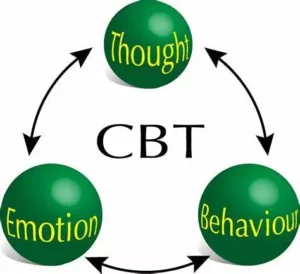Talk therapy is a form of mental health care that helps people with emotional problems. This comprehensive guide will teach you everything you need to know about talk therapy, including its history, how it works, and the benefits it offers.
Contents
What is Talk Therapy?

Talk therapy is a type of mental health care that helps people with mental health problems. This type of therapy is often used to help people learn how to deal with their problems. Talk therapy can also help people learn how to better communicate with others.
Types of Talk Therapy
There are many types of talk therapy, and each has its own specific goals and methods. This comprehensive guide will outline the most common types of talk therapy and provide a brief overview of their benefits and drawbacks.
Cognitive Behavioral Therapy (CBT)

Cognitive Behavioral Therapy (CBT) is a type of talk therapy that focuses on changing negative thought patterns. CBT is often used to treat anxiety, Depression, Obsessive-Compulsive Disorder (OCD), and other mental health issues. Also, CBT is a short-term treatment that typically lasts around 10-12 weeks. CBT can be used in combination with medication or other treatments, and it is effective in treating a variety of mental health issues.
One limitation of CBT is that it does not always work for everyone. Some people may find that it does not work for them because they do not have the correct thought patterns, or they may not have the patience to stick with the therapy. Additionally, CBT can be costly, and some insurance companies do not cover it fully.
Exposure Therapy
Exposure Therapy is a type of CBT that focuses on exposing someone to the thing they are afraid of. For example, a person with OCD might be exposed to images that they are afraid of. Exposure therapy is often used to treat anxiety and OCD.
Exposure therapy can be a short- or long-term treatment. Short-term exposure therapy typically lasts around 10-15 sessions, and long-term exposure therapy lasts around 30-60 sessions. Exposure therapy is often used in combination with medication or other treatments, and it is effective in treating a variety of mental health issues.
One limitation of exposure therapy is that it may not work for everyone. Some people may find that the fear is still present after exposure therapy, or they may have negative reactions to the exposure therapy (for example, feeling scared, anxious, or panicky). Additionally, exposure therapy can be expensive.
Family Therapy

Family Therapy is a type of talk therapy that helps families work through their problems. Also, Family therapy is often used to treat issues such as communication problems, conflict, and parenting challenges.
Family therapy is a short-term treatment that usually lasts around 12 weeks. It can be used in combination with other treatments, and it is effective in treating a variety of mental health issues.
One limitation of family therapy is that it may not work for everyone. Some families may find that the therapy is too difficult or uncomfortable, or they may not be able to resolve the issue they are trying to solve.
The Benefits of Talk Therapy
Talk therapy is one of the most popular forms of mental health care. It is effective in treating a variety of psychological issues, such as anxiety, depression, and grief. Additionally, talk therapy can also help people learn how to manage difficult emotions and relationships. Here are some of the benefits of talk therapy:
1. It is affordable. Talk therapy is one of the most affordable forms of mental health care. A typical session can cost between $50 and $100.
2. It is versatile. Talk therapy can be used to treat a wide range of psychological issues. It can be used to treat anxiety, depression, stress, and bipolar disorder.
3. It is effective. Studies have shown that talk therapy is an effective form of treatment for a variety of psychological issues. It is more effective than medication in many cases.
4. It can help learn how to manage difficult emotions and relationships. One of the benefits of talk therapy is that it can help people learn how to deal with difficult emotions and relationships effectively. This can be especially helpful in reducing anxiety and depression symptoms.
5. It can be beneficial in teaching self-care skills. Talk therapy can also help people learn how to self-care effectively. This can be especially helpful in reducing anxiety and depression symptoms.
How Talk Therapy Is Conducted?

Talk therapy can be conducted in a variety of ways, and the approach that is chosen depends on the patient and therapist. However, some general principles are common to most talk therapies.
The first step in talk therapy is establishing a rapport with the patient. This means getting to know the person and building a trusting relationship. The therapist should be warm, supportive, and empathetic during this phase of treatment.
After establishing rapport, the therapist will typically begin to explore the patient’s concerns and feelings. This may involve discussing specific events or experiences from the past, or phenomena that are currently happening in the patient’s life. The goal of this phase is to help the patient understand and cope with their emotions.
The next step is to provide support and guidance for the patient’s recovery. This may involve providing information or advice on how to deal with specific problems or challenges. It may also involve helping the patient develop new coping mechanisms or strategies for managing stress or anxiety.
Finally, the therapist will often recommend follow-up sessions to ensure that the treatment plan is being effectively implemented. Also, the therapist may recommend additional treatments, such as cognitive therapy or relaxation techniques, if they believe that they would be helpful for the patient. Also, in this step, the therapist may provide feedback on how the patient is doing overall, and suggest any modifications to the treatment plan that may be necessary.
What To Expect During Your First Session?
When you first walk into a talk therapy session, you may feel apprehensive. This is completely normal, and there is nothing to worry about. Talk therapists will take the time to get to know you and will work to create a comfortable, safe space for discussion.
During your first session, the therapist will likely ask about your goals for therapy and why you decided to seek help. The therapist will also ask about your history and experiences with mental health issues. After gathering this information, the therapist will create an individualized treatment plan based on what you’ve shared.
One of the most important aspects of talk therapy is communication. The therapist will listen carefully, asking questions as needed, and will try to build a relationship with you that allows for open and honest conversation. You should also be prepared to share your thoughts and feelings freely, as this is an important part of the therapy process.
Though it can be tough at first, talking through your problems with a therapist is an essential step in healing. Make sure to schedule a consultation so that you can explore whether talk therapy is right for you.
The expectations also vary with the therapist. Some therapists may provide minimal support, while others will offer more hands-on assistance.
Conclusion
Talk therapy is an incredibly powerful form of mental health treatment that can help people with a wide range of issues. In this comprehensive guide, we will provide you with everything you need to know about talk therapy, from the history and philosophy of the field to tips for choosing the right therapist for you. Whether you are seeking relief from anxiety or depression, talk therapy can be a life-changing experience. So why not give it a try?
Hope this article was of help to you! If you are suffering from mental health disorders, you may seek help from Therapy Mantra. We have a team of highly trained and experienced therapists who can provide you with the tools and skills necessary for overcoming mental health disorders. Contact us today to schedule an online therapy or download our free Android or iOS app for more information.


